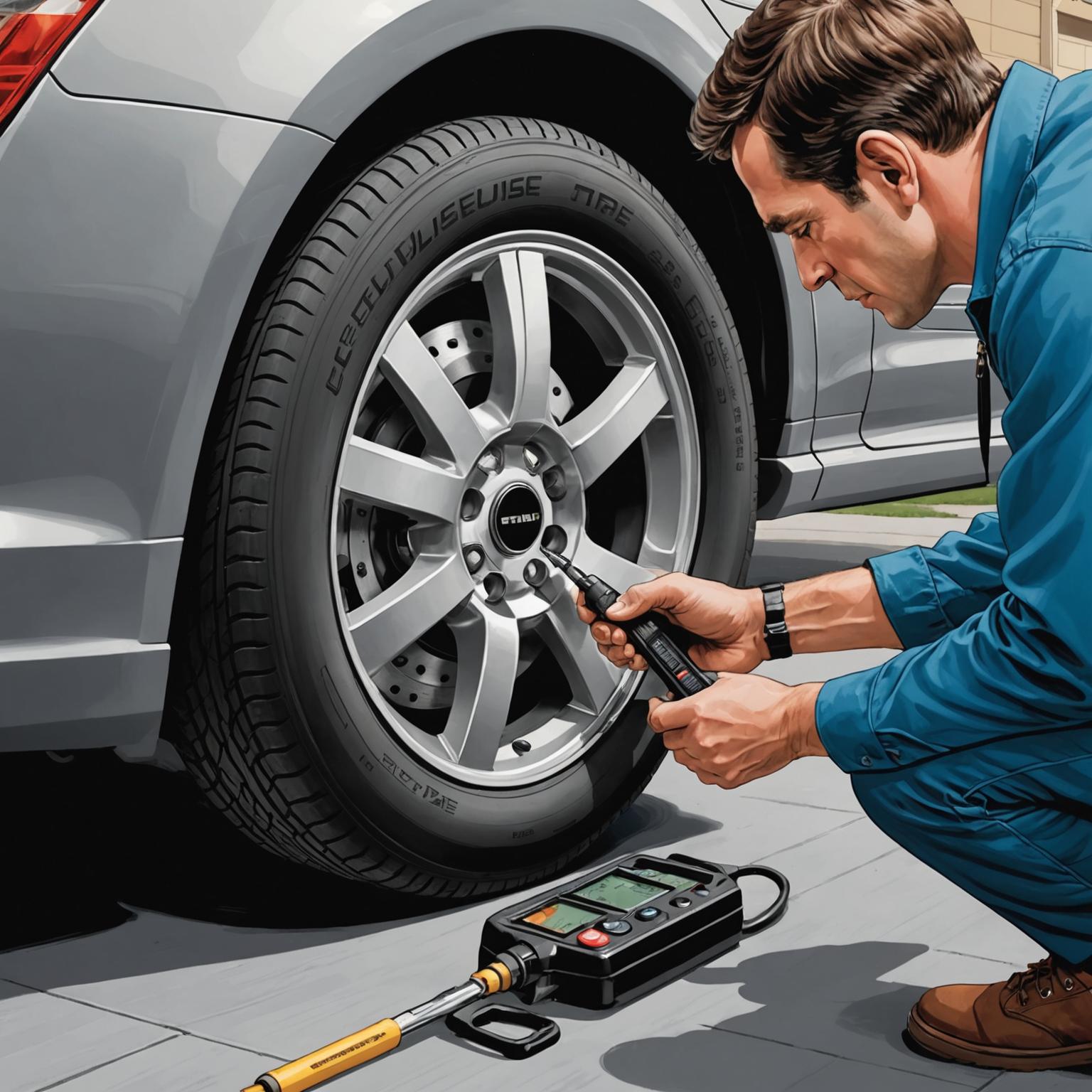Vehicle maintenance is a multifaceted responsibility, encompassing everything from regular oil changes to checking fluid levels. However, one of the most critical, yet often overlooked, aspects of car safety is the condition of your tires. They are the only part of your vehicle that makes direct contact with the road, and their health is paramount for optimal handling, braking, and overall safety. A simple yet indispensable device for this task is the Tire thread depth gauge, an essential tool for every responsible car owner.
Understanding the Critical Role of Tire Tread Depth
The grooves on your tires, known as the tread, are not just for show. They are meticulously designed to perform several crucial functions. Their primary purpose is to channel water, slush, and snow away from the tire's contact patch, allowing the rubber to maintain a firm grip on the road surface. As the tread wears down, its ability to evacuate water diminishes significantly. This can lead to a dangerous phenomenon called hydroplaning, where a layer of water builds between the tire and the road, causing a complete loss of steering and braking control. Furthermore, adequate tread depth is essential for traction, especially in adverse weather conditions. It affects your vehicle's stopping distance, cornering ability, and overall stability. In many regions, there are legal minimum tread depth requirements, typically around 2/32 of an inch. Driving with tires below this limit is not only unsafe but can also result in fines. Therefore, performing a regular Tire tread depth measurement is a non-negotiable part of proactive vehicle safety.
Introducing the Tire Tread Depth Tool: Your Safety Partner
So, how do you accurately check your tire's health? While old tricks like the penny test can give you a rough idea, they lack the precision needed for a truly reliable assessment. This is where a dedicated Tire tread depth tool comes into play. In its simplest form, it is a small, handheld measuring device designed specifically to determine the remaining depth of your tire's tread. This invaluable gadget, also known as a Tire depth checker, provides a precise, numerical reading that takes the guesswork out of tire maintenance. They are inexpensive, widely available, and incredibly easy to use, making them one of the most cost-effective safety investments you can make for your vehicle. Using proper Tire tread gauges ensures you know exactly when your tires are approaching the end of their safe, usable life.
A Step-by-Step Guide to Tire Tread Depth Measurement
Using a Tire tread depth tool is a straightforward process that anyone can master in minutes. First, ensure your vehicle is parked on a level surface. Take the gauge and push the measuring pin all the way in. Place the base of the gauge flat across the tread blocks, avoiding the raised wear indicator bars within the grooves. Carefully push the pin down into the main circumferential groove of the tire until it stops at the bottom. Without moving the pin, lift the gauge and read the measurement indicated. To get a comprehensive picture of your tire's condition, it is vital to perform this check in multiple locations. Measure the depth in the inner, middle, and outer grooves of each tire. Uneven wear across the tire can indicate issues with wheel alignment, tire pressure, or suspension components. It's also wise to take measurements at different points around the tire's circumference. This consistent and thorough approach to Tire tread depth measurement provides a complete health report for your tires.
Choosing the Right Tool: Types of Tire Tread Gauges
When you decide to purchase a gauge, you will find a few different types on the market. The most common is the simple probe or plunger-style gauge. It's a mechanical tool with a sliding pin and a marked scale, offering reliable readings at a very low cost. A step up from this is the dial gauge, which features a clock-like face with a needle that points to the precise measurement, often making it easier to read than the small markings on a probe gauge. For those seeking the utmost precision and convenience, digital Tire tread gauges are the best option. These devices feature an LCD screen that provides an exact digital readout, often with the ability to switch between inches and millimeters at the push of a button. While they may be slightly more expensive, their clarity and accuracy make them a popular choice for both enthusiasts and everyday drivers.
What to Look for in the Best Tire Tread Gauges
Selecting the Best tire tread gauges for your needs doesn't have to be complicated. The primary factor to consider is accuracy and readability. A gauge is useless if you can't trust its reading or can't easily see it. Digital models generally lead in this regard. Durability is another key consideration; look for gauges made from sturdy materials like metal or high-impact plastic that can withstand being stored in a toolbox or glove compartment. Ease of use is also important. The device should be simple to operate with one hand. Ultimately, for the average car owner, a reliable and easy-to-read Tire depth checker is more than sufficient. You don't need a professional-grade, expensive model to effectively monitor your tires' health and ensure your safety on the road.
Proactive Maintenance for a Safer Drive
In conclusion, your tires are a fundamental safety system of your vehicle. Ignoring their condition is a risk no driver should take. By investing in a simple Tire thread depth gauge and incorporating a quick check into your monthly routine, you empower yourself with crucial information. This small habit allows you to monitor wear, identify potential alignment or pressure problems early, and know with certainty when it's time for a new set of tires. It's a proactive step that enhances braking performance, improves handling in poor weather, and provides invaluable peace of mind. Don't wait for a safety inspection or a dangerous situation to discover your tires are worn; take control of your safety today.






